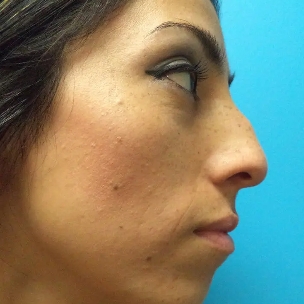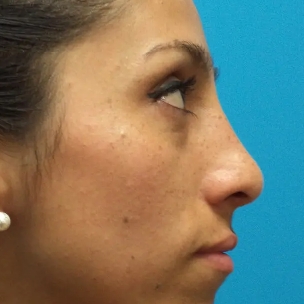In 1992, the FDA outlawed the use of silicone implants because manufacturers could not guarantee their safety. Even though they were eventually approved again in 2006, their safety has continuously been questioned.
Despite ongoing fears, silicone implants have helped make breast augmentation the most popular and well-known form of plastic surgery. Hundreds of thousands of women choose silicone implants every year, and the majority of them never experience any complications. While certain risks are possible, they are very rare.
What Are the Fears?
There is always a chance of issues whenever an object is placed in the body. One such issue is an implant rupture. A silicone rupture occurs when the shell of the implant weakens and develops a tear, allowing the inner contents to seep into the body. While a silicone rupture is not always immediately visible, as the silicone tends to remain in place, loose silicone can escape out of the breast pocket.
For many years, there was uncertainty about whether or not the silicone was dangerous if it was loose in the body. Fortunately, numerous studies by the FDA and the NBIR (National Breast Implant Registry) have concluded that silicone implants pose no health risk even if they are damaged, and there is nothing linking silicone rupture to a higher risk of breast cancer. Ruptures are a hassle that needs to be dealt with, but they are not a safety concern.
Capsular contracture is a painful condition characterized by the tightening of scar tissue around an implant. Scar tissue forms around any foreign object, and this is typically no cause for concern. Unfortunately, it can occasionally tighten and squeeze the implant, causing pain and aesthetic distortion.
To treat capsular contracture, the implant must be removed, and the scar tissue loosened. Again, this is an annoyance, and a painful one at that, but not something that results in permanent damage or health risk.
In 2016, the World Health Organization found a possible link between implants and breast implant-associated anaplastic large cell lymphoma. This is a form of cancer of the immune system—not breast cancer—that can develop in the scar tissue near the implant. Unfortunately, when it is not identified early enough, it can potentially spread through the body. As these studies are still new, information is scarce; however, researchers do believe that cases of BIA-ALCL are found only with textured implants and not smooth ones.
Some women with silicone implants have developed unusual symptoms akin to an autoimmune disease. Some of these symptoms include memory loss, confusion, fatigue, joint pain, and mood swings. Even though there is no proof linking these symptoms to the presence of implants, some women have nicknamed the syndrome “breast implant illness”. Women who experience these symptoms often find relief once the implants are removed.
What Is the Verdict?
There is no denying that breast implants come with risks. And while you do not want to ignore your fears, you should be aware that these complications are rare and not what you should expect after your procedure. Most women with silicone implants only experience the positives: the improvement of aesthetics and confidence, the wider availability of clothing, a youthful chest appearance, and a proportional body frame. And should any complication ever arise, know that breast revision will be able to fix that condition.
To learn more about silicone implants, contact PREMIERE Center at (813) 400-1465 or by filling out our online contact form.





